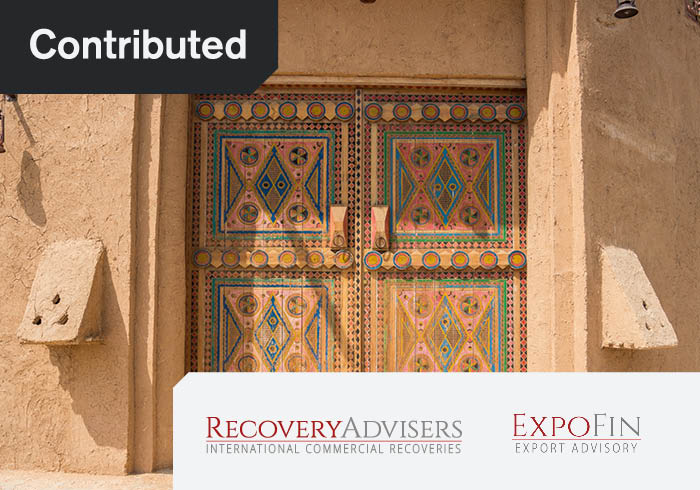Ahmed Madkour, managing director at Recovery Advisers, explores how legal reforms, standardisation and on-the-ground support are unlocking new opportunities for exporters and trade financiers in Saudi Arabia’s rapidly transforming economy.
Saudi Arabia is undergoing a profound economic transformation that is capturing the attention of global investors, exporters and trade financiers alike. Once seen primarily as an oil-dependent economy, the Kingdom is rapidly repositioning itself as a diversified, business-friendly hub that is open for trade and investment. For companies involved in international trade, especially those operating in the export finance and structured trade sectors, Saudi Arabia represents one of the most promising and dynamic markets in the world today.
At the heart of this shift lies Vision 2030, the Kingdom’s ambitious national transformation plan. Launched in 2016, Vision 2030 aims to reduce Saudi Arabia’s dependence on oil, grow non-oil GDP, attract foreign direct investment and stimulate private sector development. This vision has translated into bold policy reforms, massive infrastructure investments and increased openness to global partnerships.
In 2023 alone, Saudi Arabia’s GDP surpassed US$1.1tn, with non-oil sectors such as manufacturing, logistics, financial services and tourism gaining momentum. With more than US$3tn in planned investment projects, including Neom, The Line, the Red Sea tourism development and dozens of industrial cities, the demand for goods, technology, services and financing has surged.
This boom in activity is creating an unprecedented window of opportunity for exporters and cross-border financiers. Whether it’s supplying construction materials, heavy machinery, IT infrastructure, green technology or consumer goods, global businesses are increasingly turning their attention to the Kingdom.
Legal and regulatory transformation: Modernising the infrastructure for trade
One of the most significant enablers of this new era is the extensive legal reform programme that has accompanied Saudi Arabia’s economic strategy. Recognising that attracting international business requires a reliable and transparent legal framework, the government has enacted a series of reforms that have transformed the Kingdom’s commercial and financial legal infrastructure.
Among the most impactful developments for exporters and financiers is the creation of a Public Registry of Security Interests. This registry allows creditors to register their security interests over movable assets, including receivables, equipment and inventory. This is particularly critical in the context of export finance, where risk mitigation through secured lending is essential.
The introduction of collateralisation laws aligned with international best practices has also been a game-changer. These laws provide clarity on the perfection and priority of security interests, enabling lenders to extend financing with greater confidence. The ability to take and enforce security interests over a wide range of asset classes, beyond traditional fixed assets, has made structured trade finance more viable and scalable in the Kingdom.
In addition, reforms to the commercial court system have improved the speed and predictability of dispute resolution, enhancing overall investor confidence. The regulatory environment is increasingly aligned with global standards, and key institutions – including the Saudi Central Bank (SAMA) and the Ministry of Commerce – are playing a more active role in promoting market transparency and legal certainty.
Challenges of doing business: Cost and information gaps
Despite the encouraging legal reforms and macroeconomic momentum, companies entering the Saudi market still face several practical challenges – particularly when it comes to executing transactions efficiently and cost-effectively.
One of the most persistent issues is the difficulty in accessing reliable and comprehensive company or counterparty information. While transparency is improving, much of the available company data is limited in scope or only accessible in Arabic. This can complicate due diligence and risk assessment, particularly for lenders and trade credit insurers operating from outside the region.
Another issue is the disproportionately high legal costs associated with transactions in frontier markets such as Saudi Arabia. Inexplicably high legal fees for drafting, negotiating and localising documentation are particularly problematic for small to mid-sized transactions, where cost efficiency is crucial. In many cases, the legal spend required to close a deal can render otherwise viable transactions commercially unfeasible.
These elevated costs are often due to the perceived need for bespoke legal advice tailored to each transaction, as well as the relative scarcity of standardised templates that comply with local law. For banks, trade finance houses and exporters looking to support deals under US$10mn – or even lower in many cases – the cost-to-value ratio becomes difficult to justify. The result is a frustrating paradox: a market full of opportunity, but often too costly to access efficiently.
Breaking down barriers: How standardisation and local presence reduce risk and cost
Fortunately, there are now effective solutions available to help overcome the practical challenges of transacting in Saudi Arabia, particularly the high legal costs and due diligence risks that may have historically deterred market entry.
Key among these is the standardisation of legal documentation and transaction processes, allowing businesses to transact securely and efficiently, without excessive cost or bespoke structuring.
Recovery Advisers (RA) has been at the forefront of this effort, supporting numerous transactions in the Kingdom using standardised legal templates tailored specifically for the Saudi legal environment. These templates, which include country-specific addendums and are aligned with local law and regulatory practice, allow parties to transact efficiently without needing to reinvent legal structures or engage in prolonged negotiations.
The benefits are clear. In many instances, the use of RA’s standard documentation has led to legal fee reductions of up to 80%, while cutting transaction timelines from months to weeks. This is particularly valuable for repeat transactions or portfolio-level financing, where efficiency, consistency, and legal certainty are critical to scale.
But standardisation alone is not enough in a market where transparency can be limited. This is where RA’s on-the-ground local presence in Saudi Arabia adds a vital layer of support. With a team of locally licensed lawyers, RA is able to conduct practical due diligence, verify counterparties and provide intelligence that may not be readily available through public records or digital databases. This helps identify red flags early, reduce the risk of misrepresentation or fraud and give financiers and exporters confidence from the outset that they are dealing with credible, solvent counterparties.
By combining legal standardisation with localised due diligence, RA enables businesses to reduce both cost and risk – two of the most significant barriers to entering or scaling operations in the Saudi market. The result is a more streamlined, transparent and secure path to tapping into one of the most promising export destinations globally.
Conclusion: A market ripe for opportunity and ready for engagement
Saudi Arabia today is not the same market it was a decade ago. With a booming, diversified economy; a revamped legal and financial infrastructure; and an ambitious government that welcomes international trade and investment, the Kingdom is emerging as a prime destination for exporters and cross-border financiers.
While some challenges remain, particularly around corporate information, practical solutions are now available. The introduction of standardised legal documentation and the government’s ongoing commitment to reform are rapidly closing the gap between ambition and execution.
For businesses engaged in international trade, Saudi Arabia represents a compelling frontier. It combines size, growth and reform with a growing appetite for global goods, services and capital. Those who act now stand to benefit from a market that offers unrivalled opportunities for trade in the decade ahead.
To learn more about how our services could support your goals, visit www.recoveryadvisers.com and www.expofin.com







